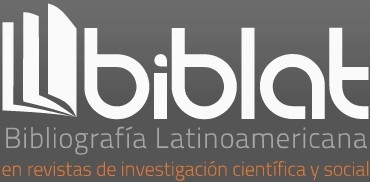Immanence and poetry. Readigs of Michel Deguy
DOI:
https://doi.org/10.35494/topsem.2015.1.33.230Keywords:
poetry, ethics, Michel DeguyAbstract
There exist multiple critiques of the immanence principle, which is a basis of semiotics. These critiques spring from different fields concerned with signification. In response, semiotics has to admit its own limits by appreciating congruity of these objections. In this paper, we propose to study the poetry of Michel Deguy, stating necessity of the immanence principle and considering its limits as an ethical imperative. Exceeding subjectivism and returning to notions such as agreement and convention, poetry reveals the link between signification and community of individuals who share and guarantee the signification by interaction.
Downloads
References
AMOSSY, Ruth et HERSCHBERG-PIERROT, Anne ([1997] 2011). Stéréotypes et clichés. Langue, discours, société. Parí: Armand Colin.
ANSCOMBRE, Jean-Claude et Salah Mejri (dir.). (2011). Le figement linguistique: la parole entravée. París: Honoré Champion.
BERTRAND, Denis (2000). Précis de sémiotique littéraire. París: Éditions Nathan.
COQUET, Jean-Claude (1991). « Réalité et principe d’immanence », en Langages, 25, núm. 103.
DEGUY, Michel (1995). À ce qui n’en finit pas : thrène. París: Seuil.
___________ (1998). Énergie du désespoir. París: puf.
___________ (1969). Figurations. Parí : Gallimard.
___________ (1985). Gisants. París Gallimard.
___________ (1999). Gisants. Poèmes III 1980-1995. Parí : Gallimard, coll. « Poésie ».
___________ (1966). Ouï dire. París: Gallimard.
___________ (1987). La poésie n´est pas seule. Court traité de poétique. París Seuil.
___________ (2000). La raison poétique. París : Galilée.
___________ (2007). Réouverture après travaux. París : Galilée.
___________ (1973). Tombeau de Du Bellay. París : Gallimard.
DUCROT, Oswald (1984). Le dire et le dit. París: Minuit.
ECO, Umberto (1999). Kant et l’ornithorynque. París: Grasset.
GREIMAS, Algirdas Julien (1966). Sémantique structurale. París: Librairie Larousse.
GREIMAS, Algirdas Julien et COURTÉS, Joseph (1993). Sémiotique. Dictionnaire raisonné de la théorie du langage. París: Hachette Supérieur.
GROUPE μ (1982). Rhétorique générale. París: Seuil.
HJELMSLEV, Louis (1971). Prolégomènes à une théorie du langage, trad. al francés de Anne-Marie Léonard. París: Minuit.
KLINKENBERG, Jean-Marie (2011). « Conclusions. De la valeur d’échange à la valeur éthique, en passant par la valeur de survie », Semen. Disponible en: http://semen.revues.org/9394.
LANDOWSKI, Eric (2004). Les passions sans nom. París: puf.
MAINARDI, Cécile (1996). « La déhiscence référentielle chez Michel Deguy ou l’inconnue x ». En charnet, Yves (dir.). Le poète que je cherche à être. París : Table Ronde-Belin.
MEJRI, Salah (dir.). Le figement lexical. Cahiers de lexicologie, 2003-1, núm 82. París : Champion, 2003.
MOLINIÉ, Georges (1998). Sémiostylistique: L’effet de l’art. París: Presses Universitaires de France.
SAUSSURE, Ferdinand de (1972). Cours de linguistique générale. París: Payot.
Downloads
Published
How to Cite
Issue
Section
License

Tópicos del Seminario is licensed under a Creative Commons Reconocimiento-NoComercial-CompartirIgual 4.0 Internacional License.














